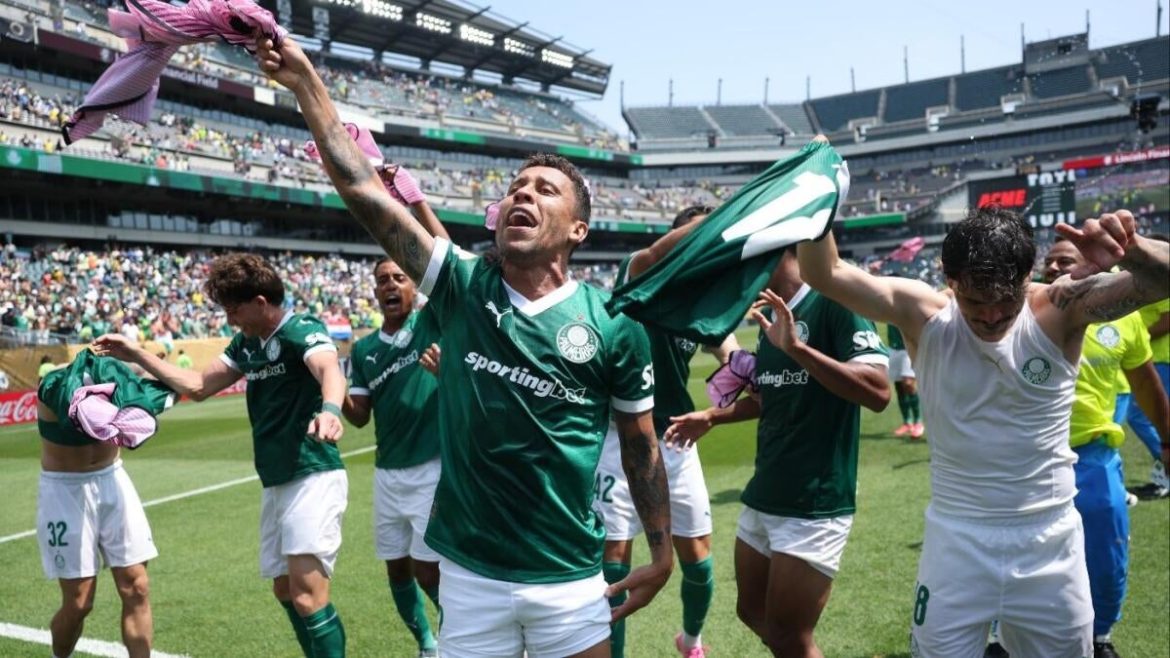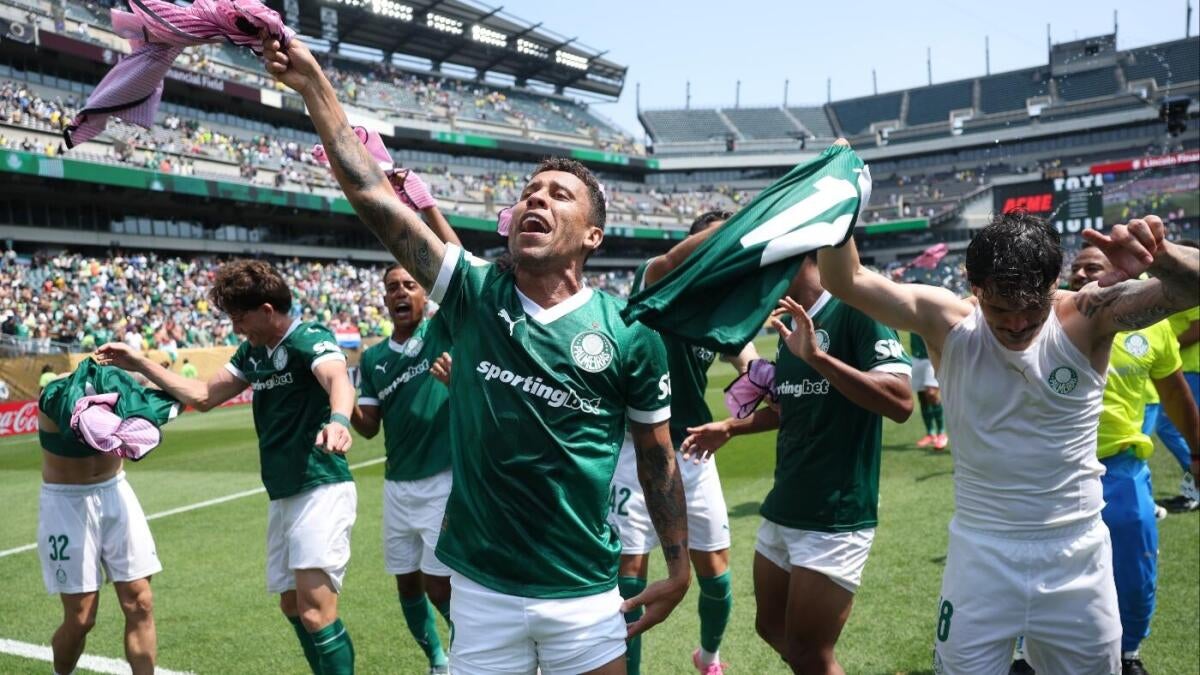The 2025 FIFA Club World Cup has become a stage for Brazilian football to reclaim its global prominence, with four Brazilian clubs—Palmeiras, Flamengo, Botafogo, and Fluminense—advancing through the group stage. This resurgence is not just a fleeting moment but a testament to the tactical evolution, physical conditioning, and strategic advantages that Brazilian clubs have harnessed. The tournament, now featuring an expanded 32-team format, has provided a unique opportunity for South American football to challenge the long-standing European dominance in club competitions.
A Shift in Global Football Dynamics
Brazilian football has long been synonymous with flair, creativity, and a deep-rooted passion for the game. However, in recent years, European clubs have consistently dominated global club competitions, leaving Brazilian teams with limited success. The 2025 Club World Cup has disrupted this narrative, with Brazilian clubs showcasing their ability to compete at the highest level. Palmeiras, in particular, has captured global attention with a hard-fought 1-0 victory over Botafogo in extra time, thanks to a decisive goal from Paulinho. This win propelled Palmeiras into the quarterfinals, where they will face either Chelsea or Benfica, two of Europe’s most formidable clubs.
The physicality and tactical discipline displayed by Palmeiras have been particularly noteworthy. Analysts have highlighted the club’s ability to “wear opponents down,” a trait that has been crucial in their success. This resilience is a stark contrast to the perception that Brazilian clubs lack the stamina and tactical sophistication to compete with European giants. The performances of other Brazilian clubs, such as Botafogo’s surprising victory over Paris Saint-Germain, further underscore the depth and quality of Brazilian football.
Tactical Mastery and Key Performances
Palmeiras’ coach, Abel Ferreira, has been instrumental in the club’s recent successes, including consecutive Copa Libertadores titles. His tactical approach, which emphasizes high-pressing and efficient counter-attacks, has transformed Palmeiras into a global contender. The club’s players exhibit a blend of technical skill and stamina, allowing them to maintain intensity throughout matches. This tactical discipline has been a key factor in their ability to compete with top European clubs.
Botafogo’s impressive run in the tournament has also highlighted the quality of Brazilian clubs beyond Palmeiras. The club’s mix of veteran leadership and young talent has enabled them to navigate both group stages and knockout rounds effectively. Their victory over Paris Saint-Germain, a club known for its star-studded lineup, has sent a clear message that Brazilian clubs are no longer underdogs but legitimate contenders on the global stage.
The Brazilian Advantage: Fitness, Timing, and Climate
Several contextual factors have contributed to Brazil’s impressive display in the 2025 Club World Cup. Unlike European teams, which are entering the tournament following an exhausting 2024-25 season, Brazilian clubs are just beginning their domestic campaign. This timing advantage means that Brazilian players are at peak fitness and can maintain intensity and recover faster between matches. The physical conditioning of Brazilian clubs has been a significant factor in their success, allowing them to outlast opponents in high-intensity matches.
Additionally, the climate conditions in the host cities have reportedly favored South American teams, who are more accustomed to warmer, humid environments compared to their European counterparts. While seemingly minor, these environmental factors can influence stamina and overall performance across multiple matches. The combination of peak fitness, tactical discipline, and favorable climate conditions has created a perfect storm for Brazilian clubs to excel in the tournament.
Broader Implications for Brazilian Football
The resurgence of Brazilian clubs in the 2025 Club World Cup has broader implications for the future of Brazilian football. Since Corinthians’ victory over Chelsea in 2012, Brazilian clubs have not clinched the world title, making these advances particularly significant for supporters and players alike. The success of Palmeiras, Flamengo, Botafogo, and Fluminense has revived national pride and bolstered belief in the Brazilian league’s global competitiveness.
Brazil’s expressed interest in hosting future editions of the Club World Cup indicates confidence in their football infrastructure and desire to regain continental prestige. If Brazilian clubs continue their strong performances, it could stimulate renewed investment in local leagues, attract emerging talent, and inspire younger generations to pursue football careers domestically. The success of Brazilian clubs in the tournament could also lead to increased commercial opportunities, further strengthening the financial stability of Brazilian football.
Challenges Ahead: The European Test
Despite the promising trajectory of Brazilian clubs, the true test lies ahead as they face stiff challenges in the knockout stages. The quarterfinal matchups against European giants like Chelsea or Benfica will test their mettle at higher intensity levels and tactical sophistication. European clubs bring deep rosters with international experience and often feature players of world-class caliber from multiple leagues. The ability of Brazilian clubs to sustain their stamina and tactical prowess against these seasoned opponents will be crucial in determining their success in the tournament.
Some critics argue that the victories of Brazilian clubs in the group stages were partly due to European teams’ fatigue or underestimations. However, the true measure of their progress will be their performance in the knockout stages. Should Brazilian clubs overcome these challenges and claim the coveted Club World Cup title, it would mark a significant shift in the global football landscape.
Palmeiras’ Road to Redemption
For Palmeiras, winning the Club World Cup would provide a potent narrative of redemption and validation. After securing two Copa Libertadores titles under Abel Ferreira, a global triumph would seal their status as a powerhouse. Fans and analysts alike see this tournament as a “dream come true” and hope it might break the “world title curse” that has eluded the club. The squad’s blend of tactical discipline, physical resilience, and creative flair sets the stage for a compelling clash with European adversaries.
Should Palmeiras succeed in their quest for the Club World Cup title, it would not only be a historic achievement for the club but also a significant milestone for South American football. The success of Palmeiras and other Brazilian clubs in the tournament could inspire a new generation of players and coaches to strive for excellence, further strengthening the competitiveness of Brazilian football on the global stage.
Conclusion: A New Era for Brazilian Football?
The performances of Brazilian clubs in the 2025 Club World Cup offer much more than isolated victories; they symbolize a revival of South American football’s pride and competitiveness against traditional European dominance. With four Brazilian teams reaching the knockout stages, the momentum is unmistakable. Their success is underpinned by a combination of tactical innovation, physical readiness, favorable timing, and environmental conditions. Yet, as the tournament enters critical phases against strong European sides, the true value of this resurgence will be tested.
Should Brazilian teams convert this momentum into titles, it could herald a new era where South American clubs reclaim their rightful place atop global club football. The world will be watching keenly as Palmeiras and other Brazilian giants attempt to translate their promise into historic triumphs. The success of Brazilian clubs in the 2025 Club World Cup could mark the beginning of a new chapter in the history of South American football, one that challenges the status quo and redefines the global football landscape.





